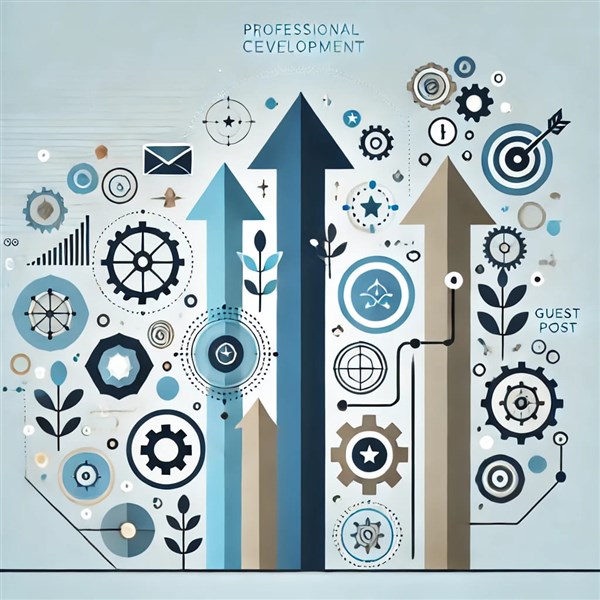Unable to find what you're searching for?
We're here to help you find it
In today’s competitive job market, standing out requires more than technical expertise—it demands a strong foundation in essential soft skills that enhance every aspect of your professional life. Professional development certification programs offer an efficient way to build these critical skills and show employers your dedication to continuous growth. They cater to diverse industries and experience levels, making them versatile tools for skill enhancement.
This article explores the top skills you’ll develop through a professional development certification program, covering critical areas like communication, project management, critical thinking, leadership, and more. Each of these skills not only boosts your employability but also enhances your ability to perform well in various professional roles.
Communication is a cornerstone of any successful professional endeavor. In a professional development certification program, you’ll sharpen both verbal and written communication skills, learning how to convey your ideas clearly, concisely, and confidently.
Communication skills can positively impact your interactions with clients, colleagues, and leadership, enhancing collaboration and productivity across the board.
Project management skills are essential in almost every industry, as they enable professionals to plan, execute, and oversee projects effectively. A professional development certification will introduce you to project management tools and strategies that will help you organize resources, track progress, and meet deadlines.
Project management skills boost your productivity and help you achieve objectives more systematically, making you an invaluable asset in any organization.
Critical thinking and problem-solving are among the most valuable skills you can develop, as they empower you to analyze complex issues, identify potential solutions, and make informed decisions. A professional development certification program will guide you through structured approaches to critical thinking and equip you with problem-solving frameworks.
Critical thinking and problem-solving skills are highly sought after, as they enable professionals to contribute meaningful insights and solutions in any role.
Leadership skills aren’t just for those in management roles; they’re beneficial at all levels within an organization. A professional development certification program typically includes leadership training, teaching you how to lead by example, inspire others, and work collaboratively with team members.
Leadership and teamwork skills are invaluable for creating a positive work environment and achieving collective goals. They enhance your reputation as a proactive, supportive, and effective team player.
Today’s work environments are more dynamic than ever, requiring professionals to adapt to changing circumstances quickly. Professional development certification programs help you develop adaptability and flexibility by preparing you to handle challenges and pivot when necessary.
Adaptability and flexibility enable you to thrive in fast-paced, ever-changing industries and make you a reliable, versatile asset in your organization.
Emotional intelligence (EQ) is the ability to recognize and manage your own emotions, as well as understand and influence the emotions of others. Professional development certification programs often emphasize EQ as a fundamental skill for workplace success.
High EQ enhances interpersonal relationships, making collaboration smoother and improving overall team dynamics.
Strategic thinking is about setting goals, planning long-term, and anticipating potential challenges and opportunities. A professional development certification program will guide you through strategic planning methods, helping you align your work with larger organizational goals.
Strategic thinking is a highly valued skill in leadership roles and positions that require a forward-looking approach to decision-making.
In our technology-driven world, digital literacy is no longer optional—it’s essential. Professional development certification programs incorporate digital literacy training to ensure you’re comfortable with tools, software, and digital platforms that are relevant to your field.
Digital literacy keeps you competitive and ensures you can adapt to evolving digital work environments.
Final Thoughts
A professional development certification program is an investment in yourself and your career. It provides a structured, comprehensive approach to building essential skills that benefit any career path. Skills such as communication, project management, critical thinking, leadership, adaptability, emotional intelligence, strategic thinking, and digital literacy not only increase your value to employers but also empower you to approach your work with confidence and resilience.
Whether you’re early in your career or looking to advance to a new level, these skills will enhance your job performance, open up new opportunities, and set you apart in a competitive job market. By pursuing a professional development certification, you’re signaling to employers that you’re committed to excellence and continuous growth—a message that resonates in any industry.
Koenig Solutions is a leading IT training company providing the best self development programs. With a team of certified professionals and a vast range of courses, Koenig ensures you have access to the most relevant and up-to-date content.
Koenig Solutions is committed to your personal and professional growth. Start your self-development journey with us today!

Aarav Goel has top education industry knowledge with 4 years of experience. Being a passionate blogger also does blogging on the technology niche.










